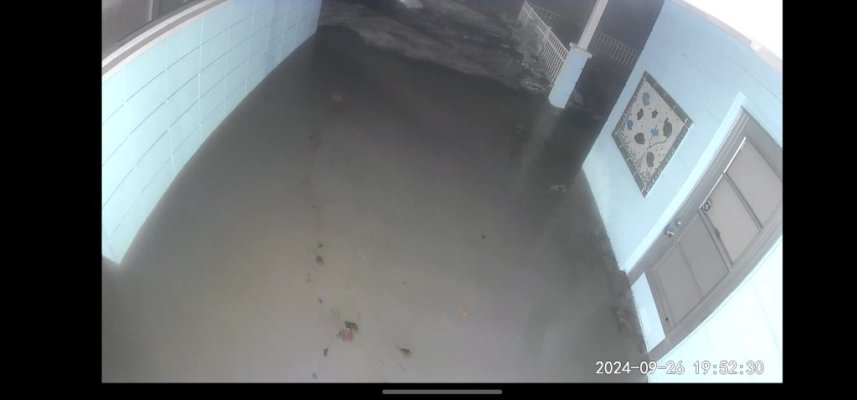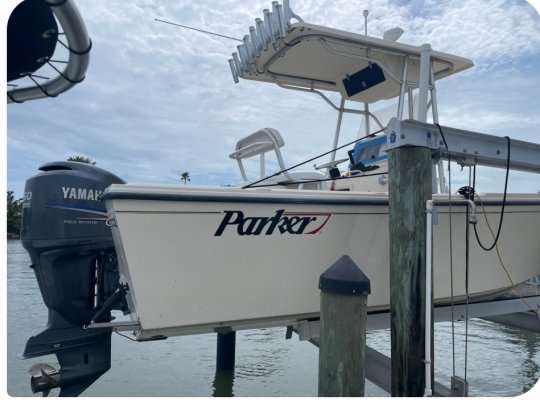For the perpetual critics who suspect that Florida boaters are negligent, take a look at the chart and the forecast track, and tell us where you would have repositioned your boat between Monday and Wednesday while simultaneously securing your home and business, and evacuating your family. As Ted noted, the Caloosahatchee River would have been about the only play, assuming you could beat the rush and get to Ft. Myers in time.
It easy to judge after the fact. Post storm we know the strength, exact trajectory, tidal surge level etc. We have tropical storm/hurricanes every year. We tend to critique after the fact very unfairly as perfect boat operators with unlimited time and resources and little regard for real life aspects such as jobs, family needs and other mundane concerns. Every year, as they pop up, we make decision and calculations based on available information. In addition, based on past accumulated history there is some complacency baked in there (cant say there isnt..lol). When a storm like this approaches there are only a few things that can be done. The following is just my opinions from what i think I have learned over the 5 or 6 years or so of owning a boat that stays in a Marina:
1) Take it out of the water- The ratio of Marinas and facilities to do this VS actual boats is 10,000 to 1. And if you dont have a pre-paid plan with your local Marina (if they offer one) or know someone that operates the Marina, the likelihood of success with this is low. We have exactly 1 local Marina that would have space beyond their own customer base and they have room for about 10- 20 boats extra to pull and block up. So as the trajectory and strength become more certain, around 2 to 3 days prior to impact you would have to burn up the phones in an attempt to locate a place. Each successive phone call is to a location farther and farther away that would take prep and time to get to. Keep in mind I and most others are still at my job 10 hours a day and have to prep the house. Its worth an attempt but unless you prearrange something its not likely to happen. Especially while working and while also being a homeowner.
2) Move the boat- completely depends on your available time and the specifics of the storm. The ones that come up the West side of Florida make for difficult decisions. They have a bad tendency to turn East. So if traveling down from say...Tampa to Ft Myers to make the Caloosahatchee River as the storm comes up the coast you could find yourself in a very dire situation. I have a buddy who did just this. But he has a charter boat he runs and no other job and just a rental house. So he left early. His boat is also a planing boat and can scoot a bit as needed. He made it safely. But most people have to work up until the day before. So on sail and slow boats this is still a risky option. You also abandon your #1 asset of your home. And if you work, you burn sick days and or vacation days that may or may not even be approved. And ill say that when everyone else at work is prepping for the benefit of the business and you say you have to leave to go take care of your fancy boat...that doesn't go over so well..lol. I realize many here are independently wealthy or retired but that's not the case with many others.
3) check your insurance and tie it down. Go do all the other things required such as finish up at work, prep your house, check generators, work, get gas, relocate if needed, other family needs... shop..lol.
For probably 99% of Floridians that own boats, the boat itself is a low priority and falls into category 3. Plus there just isn't enough time in the days leading up to these things.
A couple other things after surveying surrounding marinas yesterday.
1) Some of the boats that were removed from the water toppled anyways because the water rose so high. Some of those boats would have been better in the water tied off.
2) Many failures of boats tied in their slips came from lines too tight. Many ripped up cleats. And if the cleats didnt give way, the boards with cleats attached came up.
2) One very important and sometimes overlooked aspect is the selection of which marina you berth your boat... Will it be subject to wave action in wind or storms? We are at Anclote Isles Marina. Its a few miles up river and then you turn into a nice cove that has a narrow mouth. The cove itself is the size of small lake about 500 feet across with wave absorbing mangroves on either side. The fetch is too short to propagate significant wave action. I watched the boat via webcams all night and there was never waves over 6 inches. IMO this aspect is one of the most critical for storm survivability. Wave action is a killer....a dock destroyer. Much more so than wind.
My personal takeaways from this storm:
-I am in a very good location.
-I need to increase my insurance a bit. I use "agreed upon value" since my boat isn't super valuable and I can absorb some losses. But the thought of my boat going down after installing all the Garmin and Victron and Lifepo4 stuff had me sweating a bit...lol. I need to raise the agreed upon value another 10-15k. Unfortunately I think premiums will be going up. So Ill let that settle a bit before asking.
- I have a much better grasp of how to tie up in a storm like this with surge like this. I had about 2 or 3 feet more available space for tide rise. But with a few minor changes I can increase that quite a bit. Longer lines on the stern ties to the pilings on the far side of the dock would have given much more up and down "throw" instead of the stern ties being only about 11 feet long. Increasing them to 18 to 20 feet long would give much more leeway for tidal rise. The stern lines were my "weak link" here. Glad I didnt not exceed it this time.
It was a good "learning experience" and I came though unscathed...but I will be even more prepared next time. I feel lucky to learn these lessons in real events without losses.




